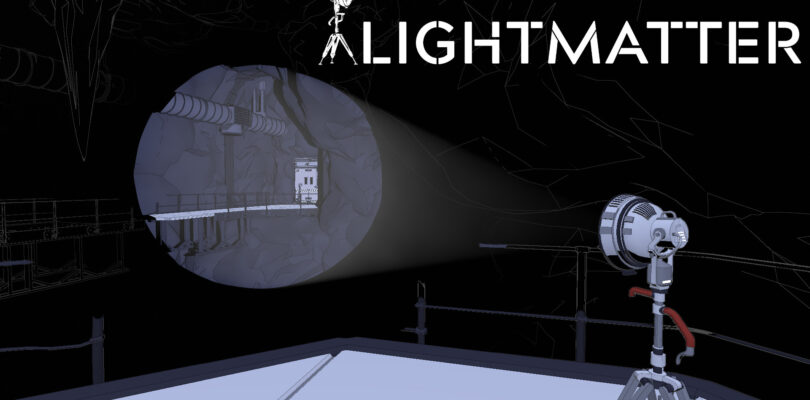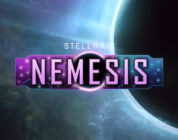Lightmatter is a game developed by Tunnel Vision Games and published by Aspyr. One minute you’re part of the tour of the brand new energy facility, the next minute there’s an explosion, the facility is in ruins, oh and shadows will dissolve you in half a second. Luckily, you’re being helped by the facilities founder who teaches you how to use lamps, because you’re oh so stupid without him. Time for the Lightmatter PC review, and there’s no tour guide this time.

Contents
Story
You’ve just woken up, the miscellaneous non-descript individual you are, and you suddenly find yourself needing to escape from an underground facility that underwent a catastrophic failure and basically shook itself to pieces. As you’re bumbling around, you catch the attention of Virgil, the facilities owner and the inventor of Lightmatter: A revolutionary energy source that solves everything, because new energy sources tend to do that for some reason.
One problem, there was an accident with the main Lightmatter reactor that caused the explosion that ruined the facility, and now every surface that doesn’t have a light shining on it will now eat organic matter. ‘Oh well’ says Virgil as he tells you over and over and over how unbelievably stupid you are, as he gives you instructions on how to leave the facility.
Lightmatter does have a solid story and some great writing, but the problem is in parts it’s too good; Virgil is a constant pain in the arse who you want to strangle every time he opens his damn mouth, even later on when he finally starts showing you some respect. It had me playing out of spite more than anything just to strangle this pompous egghead in his own office at the end, but whether you do or not is a spoiler best left unanswered.
There’s numerous subplots throughout with some other characters and minor stories but nothing too big to pull away from the main goal, it’s all got a light touch that really harmonises with the minimalist gameplay and feel. On top of this there are quite a few little science references and neat ideas, and the devs were obviously inspired by portal to the point of having Virgil at one point go on a mini rant against Aperture science, placing them canonically as a rival. Still not sure if that’s quirky or a bit too ambitious, I’ll leave that up to you.

Gameplay
Lightmatter is all about solving puzzles, namely making paths by lighting up dark areas to get to safety. You’re given light sources that you need to reposition, and to start with this is the trusty lamp. You eventually get another light source later, but the game never goes further than these two types which limits the puzzles that can be created.
It feels like wasted potential, not mostly because the game is short. None of the puzzles require much thinking beyond a basic understanding of an areas layout, and I only very rarely had a ‘oh that’s clever’ moment like other puzzle games offer. It almost feels like the devs were concerned with making the areas visually appealing and focusing on the writing, and don’t get me wrong the puzzles are interesting enough but once I finished the game I thought ‘oh, is that it?’
As it stands Lightmatter feels like a really solid beta or something that had an ending tacked on when the dev team couldn’t think of what to do next. It’s a real shame as well, because it really is a good game when you’re in it but it does feel rushed in hindsight.

Graphics
The graphics of Lightmatter are definitely to be celebrated. Cell shading works brilliantly for this title, as you’re primarily looking at mechanical and industrial set pieces with stark lighting and intense particle effects. It all comes together to feel very bold and unique, giving the game it’s own identity. For a game that relies so heavily on the boundaries between light and darkness, I never once got confused about what was and wasn’t illuminated.

Sound
The sound design of Lightmatter is nothing especially notable, there were no background tracks I can recall, and everything sounded as it should which is hardly a stand out compliment. The voice acting though was superb, especially for a small indie studio. You only hear two voices throughout the game, but both are great.
Virgil makes up about 85% of all the games dialogue, but the delivery gives such a sense of narcissism and psychosis that you are truly motivated to shut this prick up. Seeing as most of the sound in the game comes from Virgil, it receives high marks for just how well the writing and delivery merges and comes across, to the point where I was on the edge of my seat in the final few minutes of gameplay because of how he reacted to my actions.

Lightmatter PC review – Verdict
Imagine you’ve just ordered from your favourite takeaway, and they forgot a few things. We’ve all been there. You got your burger, but maybe you’re missing the fries, or those extra chicken wings you wanted. That’s how Lightmatter feels; what is there is well made and tasty, but you’re left wanting another something extra on top to fill your stomach, to really round out the meal and leave you feeling full.
You often hear people say ‘quality not quantity’, but when you’re left thinking ‘is that it?’ then it shows you felt there was room to go further, and even though I think Lightmatter is a great game, it had so much potential to go even further with its ideas and expand its identity. Still, if you’re in the mood for a puzzler and don’t mind it being a little short, I’d recommend you give it a go.
If you enjoyed this Lightmatter PC review, why not look at our other content:




